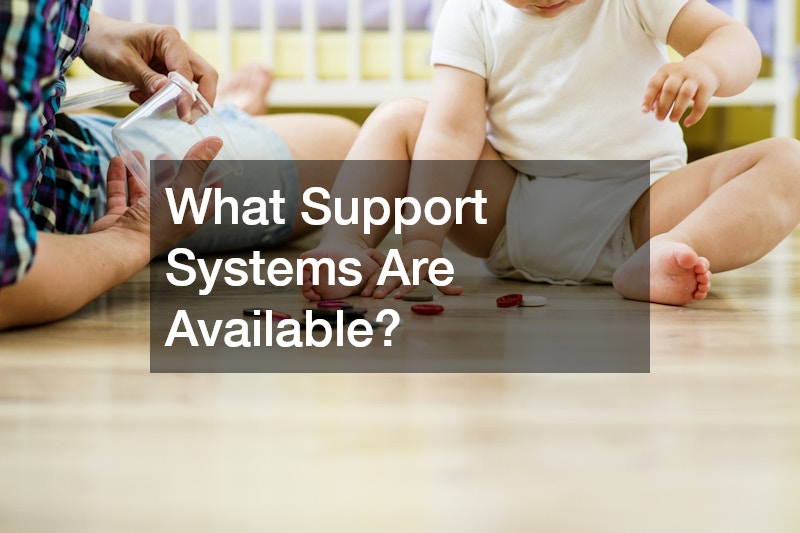This article aims to provide answers to some of the most frequently asked questions by parents and caregivers about raising a baby with Down syndrome. It covers various aspects from health concerns to education and support systems available.
What Health Challenges Can Be Expected?
Common Health Issues
Babies with Down syndrome are often born with a range of health problems that can require immediate attention. Some of the most common issues include congenital heart defects, respiratory infections, and hearing difficulties, which may necessitate surgical interventions or ongoing medical care.
Additionally, digestive issues such as gastrointestinal blockages can occur, requiring timely diagnosis and treatment. Parents must be vigilant about monitoring their baby’s health and working closely with healthcare professionals to address any problems promptly. With routine medical check-ups and comprehensive care plans, many health issues can be managed effectively, allowing children with Down syndrome to lead healthy lives. Early intervention and preventative care are crucial components of this process.
Preventative Health Care
Preventative healthcare measures include routine check-ups, vaccinations, and regular screenings to manage and detect any health concerns early. Specialists often recommend frequent developmental assessments to address potential delays or health issues as they arise. Participation in preventative health programs is essential to maximize a child’s growth and development potential. Healthcare providers emphasize the importance of keeping vaccinations up-to-date to protect against preventable diseases that may pose a greater risk to children with Down syndrome. These preventative measures and regular consultations with pediatricians can lead to positive health outcomes. Effective management strategies for common health challenges can mitigate many potential complications associated with Down syndrome.
How Can I Support Their Development?
Early Intervention Programs
Early intervention programs are vital in supporting the developmental milestones of babies with Down syndrome. These programs provide tailored therapies for speech, occupational, and physical development. By focusing on early cognitive and motor skill development, these interventions optimize the child’s potential and prepare them for future educational opportunities. Participation in these programs from an early age is strongly advised for families. With the guidance of skilled professionals, children can achieve significant progress in reaching developmental milestones. Early intervention sets a strong foundation for lifelong learning and development.
Engagement and Activities
Keeping your child engaged with stimulating activities is crucial for their cognitive and motor development. Activities such as music therapy, sensory play, and interactive games can significantly enhance learning. Similarly, physical activities tailored to each child’s abilities promote physical health and motor skills. Encouraging participation in group activities also fosters social skills and interaction with peers. Furthermore, choosing the right type of activities that are both fun and educational can lead to improved learning outcomes. Engagement in well-rounded activities can provide your child with a balanced approach to development.
What Are the Educational Needs?
Inclusive Education Options
Inclusive education is beneficial for children with Down syndrome as it promotes social interaction and academic achievement in a supportive environment. Many schools now offer inclusive programs where children with disabilities learn alongside their peers. These environments foster acceptance and understanding among students, helping children with Down syndrome develop essential social skills. Collaboration between educators, parents, and specialists is crucial to tailor the educational experience to each child’s needs. By participating in inclusive education options, children with Down syndrome can improve their learning outcomes and social relationships.
Special Education Resources
There are numerous special education resources available to support children with Down syndrome, including individualized education plans (IEPs) and specialized teaching aids. IEPs are tailored to each child’s unique learning needs and goals. Access to special education resources ensures that specific learning challenges are addressed and provides a structured learning environment. These resources empower children by allowing them to learn at their own pace and with appropriate support. Furthermore, continuous assessment and adaptation of these educational plans are necessary for sustained academic progress.
How Can I Ensure Social Integration?
Building Social Skills
Developing social skills is essential for the integration of children with Down syndrome into society. Encouraging regular playdates, group activities, and interactive games can help in building these skills. Structured social skills training programs are available, focusing on common social scenarios and responses. These programs teach children how to interact properly with peers and handle different social situations. Fostering an environment of inclusion and respect is equally important within communities.
Community Involvement
Community programs play a pivotal role in promoting social inclusion for children with Down syndrome. Joining clubs, attending events, or participating in group classes offers opportunities for socialization and fun. Furthermore, these programs can serve as support networks not only for the children but also for their families, offering camaraderie and understanding. Involved communities provide meaningful connections and support systems. By facilitating involvement in community activities, children with Down syndrome can develop a strong sense of belonging and self-worth.
What Support Systems Are Available?
Family and Peer Support Groups
Family and peer support groups offer vital assistance and camaraderie to those raising a child with Down syndrome. These groups provide an opportunity to share experiences, challenges, and advice in a non-judgmental environment. Local and online groups offer a lifeline to families seeking guidance and understanding. They connect families with others facing similar challenges and provide information about resources and services available. Being part of a community that understands the journey can relieve stress and offer emotional support. Participation in support groups can empower families with knowledge and confidence.
Professional Guidance and Counseling
Accessing professional services like occupational therapy, speech therapy, and counseling can significantly impact a child’s development. These services provide specialized support tailored to each child’s needs. Professional guidance ensures that every aspect of a child’s development is monitored and supported, from physical abilities to emotional welfare. Collaboration with professionals enables families to address complex challenges effectively. Through regular therapy sessions and counseling, children can gain valuable skills and find new ways to overcome barriers.
.

